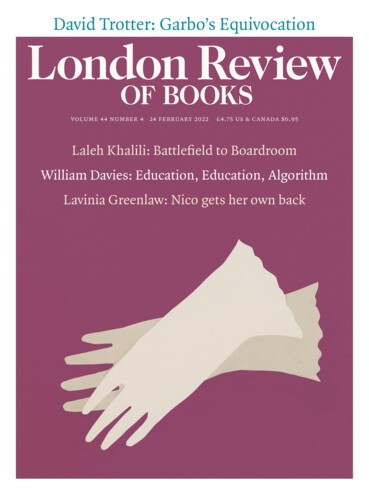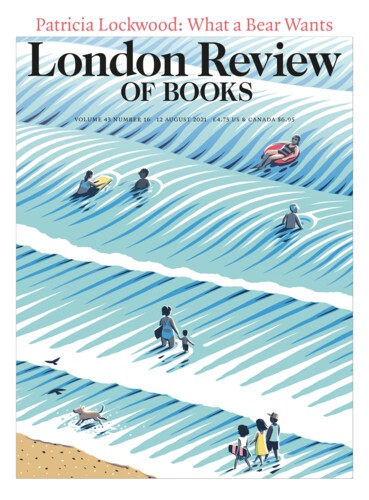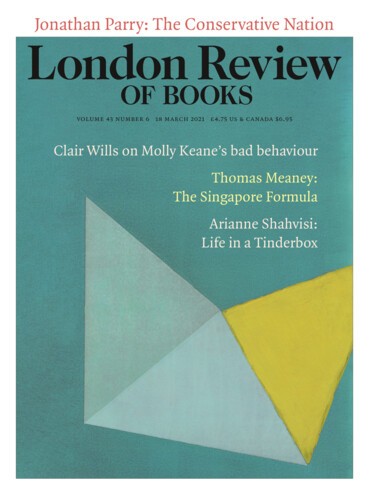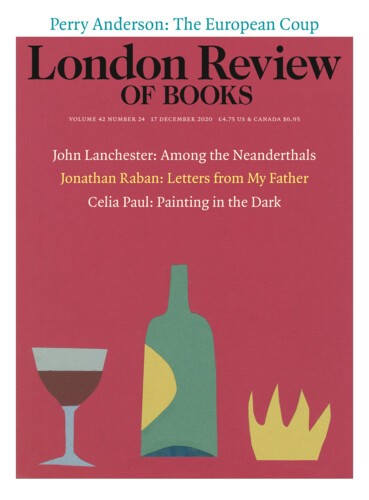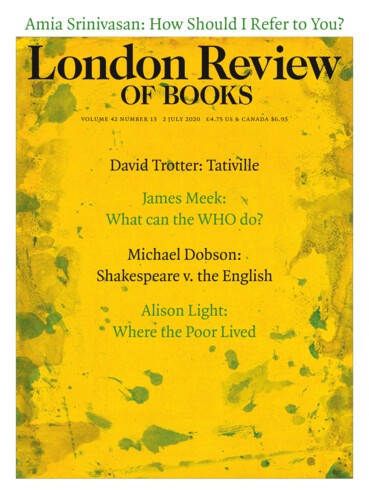Investigate the Sock: Garbo’s Equivocation
David Trotter, 24 February 2022
The problem with Garbo is that she rapidly became, and still remains, iconically iconic. It isn’t just that when we talk about Garbo we’re talking about what it means to be talked about – to the extent that the person she was and the films she made now seem almost beside the point. It is rather that, to judge by the tone of much of the commentary, the person and the films were never the point in the first place.
